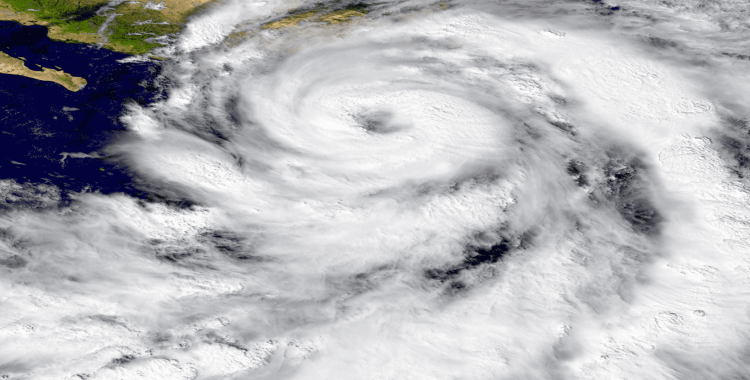As the summer months and hurricane season approach, businesses must start preparing for the potential risks of natural disasters, especially hurricanes. The impact of a hurricane on a business can range from mild to devastating, and it’s crucial to have a disaster preparedness plan in place to minimize losses. Investing in a commercial disaster preparedness plan is the best way to prepare for the worst-case scenario. In this article, we will discuss the importance of disaster preparedness for businesses and the benefits of investing in a commercial disaster preparedness plan.
The Importance of Disaster Preparedness for Businesses
Disasters can happen anytime, anywhere, and businesses need to be prepared to handle them. A disaster preparedness plan provides a framework for how a business will respond to a disaster, and it can help minimize the impact of the disaster on the business. A disaster preparedness plan should consider all possible risks, including natural disasters, cyberattacks, and human error. By having a disaster preparedness plan in place, businesses can minimize the disruption to their operations, protect their employees, and reduce financial losses.
Disasters can have a significant impact on a business’s bottom line, and the cost of recovery can be substantial. In fact, according to FEMA, 40% of small businesses never reopen after a disaster. This highlights the importance of disaster preparedness for businesses of all sizes. By investing in a commercial disaster preparedness plan, businesses can minimize the risk of financial losses and ensure they can continue to operate even in the face of a disaster.

What is a Commercial Disaster Preparedness Plan?


A commercial disaster preparedness plan is a comprehensive plan that outlines how a business will respond to a disaster. The plan should consider all possible risks and provide a framework for how the business will respond to each one. A commercial disaster preparedness plan should include the following elements:
Risk Assessment:
A risk assessment is an evaluation of the potential risks that a business may face. The assessment should consider all possible risks, including natural disasters, cyberattacks, and human error. Once the risks have been identified, the business can develop strategies to mitigate them.
Emergency Response Plan:
An emergency response plan outlines how a business will respond in the event of a disaster. The plan should include evacuation procedures, communication protocols, and contingency plans for critical operations.
Business Continuity Plan:
A business continuity plan outlines how a business will continue to operate in the event of a disaster. The plan should include strategies for maintaining critical operations, communication plans, and backup systems.
Disaster Recovery Plan:
A disaster recovery plan outlines how a business will recover from a disaster. The plan should include strategies for restoring critical systems and data, as well as procedures for assessing and repairing damage.
Benefits of Investing in a Commercial Disaster Preparedness Plan
Investing in a commercial disaster preparedness plan can provide numerous benefits for businesses. Some of the benefits include:
Minimizing Financial Losses:
A disaster preparedness plan can help businesses minimize financial losses by providing a framework for how to respond to a disaster. By having a plan in place, businesses can quickly respond to a disaster, minimizing the disruption to their operations and reducing financial losses.
Protecting Employees:
A disaster preparedness plan can help protect employees by providing guidelines for how to respond to a disaster. The plan should include evacuation procedures, communication protocols, and contingency plans for critical operations. By having a plan in place, businesses can ensure the safety of their employees during a disaster.
Maintaining Critical Operations:
A disaster preparedness plan can help businesses maintain critical operations during a disaster. The plan should include strategies for maintaining communication, backup systems, and contingency plans for critical operations. By having a plan in place, businesses can ensure they can continue to operate even in the face of a disaster.
Enhancing Reputation:
A disaster preparedness plan can enhance a business’s reputation by demonstrating that they are prepared to handle a disaster. By having a plan in place, businesses can show their customers, investors, and stakeholders that they are committed to ensuring the safety of their employees and minimizing the impact of a disaster.


Developing Your Business’s Disaster Preparedness Plan


Developing a disaster preparedness plan can seem overwhelming, but it’s essential for the safety and continuity of your business. Here are some steps to follow when developing your business’s disaster preparedness plan:
Step 1: Identify Risks:
The first step in developing a disaster preparedness plan is to identify the potential risks that your business may face. Consider all possible risks, including natural disasters, cyberattacks, and human error.
Step 2: Develop Response Strategies:
Once you have identified the potential risks, develop response strategies for each one. Consider evacuation procedures, communication protocols, and contingency plans for critical operations.
Step 3: Train Employees:
Make sure your employees are trained on your disaster preparedness plan. Conduct regular drills and provide training on evacuation procedures, communication protocols, and contingency plans for critical operations.
Implementing and Testing Your Plan

Implementing and testing your disaster preparedness plan is crucial to ensuring its effectiveness. Here are some steps to follow when implementing and testing your plan:
Step 1: Assign Roles and Responsibilities:
Make sure everyone knows their roles and responsibilities during a disaster. Assign specific tasks to individuals and provide training on their roles and responsibilities.
Step 2: Conduct Regular Drills:
Conduct regular drills to test your disaster preparedness plan. Make sure to evaluate the effectiveness of your plan and make any necessary changes.
Step 3: Review and Update Your Plan:
Your disaster preparedness plan should be reviewed and updated regularly to ensure it remains relevant and effective. Make sure to incorporate any changes to your business operations or infrastructure.
The Role of Technology in Disaster Preparedness
Technology plays a crucial role in disaster preparedness. Here are some ways technology can enhance your disaster preparedness plan:
Communication:
Technology can provide multiple communication channels during a disaster, including email, text messaging, and social media. By having multiple communication channels, businesses can ensure they can communicate with employees, customers, and stakeholders during a disaster.
Backup Systems:
Technology can provide backup systems for critical operations, including data storage and communication systems. By having backup systems in place, businesses can ensure they can continue to operate even in the face of a disaster.
Monitoring:
Technology can provide real-time monitoring of potential risks, including weather patterns and cyber threats. By having real-time monitoring in place, businesses can quickly respond to potential risks and minimize the impact of a disaster.


Disaster Recovery Services and Support


In the event of a disaster, businesses may require disaster recovery services and support. These services can help businesses recover from a disaster and minimize financial losses. Some of the services and support available include:
Data Recovery:
Data recovery services can help businesses recover critical data after a disaster. These services can help businesses restore data that may have been lost or damaged during a disaster.
Infrastructure Restoration:
Infrastructure restoration services can help businesses repair damage to their infrastructure, including buildings and equipment. These services can help businesses get back to normal operations as quickly as possible.
Financial Assistance:
In some cases, businesses may be eligible for financial assistance after a disaster. This assistance may include loans or grants to help businesses recover from a disaster and minimize financial losses.
Stay Ahead of the Storm with a Commercial Disaster Preparedness Plan
Investing in a commercial disaster preparedness plan is essential for businesses of all sizes. A disaster preparedness plan can help minimize financial losses, protect employees, maintain critical operations, and enhance a business’s reputation. By following the steps outlined in this article, businesses can develop an effective disaster preparedness plan and ensure they are prepared for any disaster that may occur. So, stay one step ahead of the storm and invest in a commercial disaster preparedness plan today.






